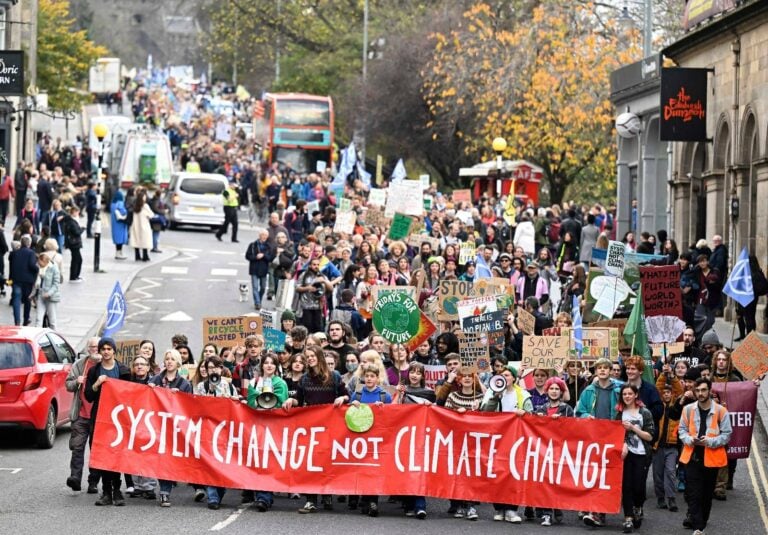
European expert group on sustainable finance calls for feedback
Since January 2017, a High-Level Expert Group on Sustainable Finance(opens in new window) (HLEG) has been at work to provide operational and concrete recommendations to the European Commission (EC) for a comprehensive EU strategy to ensure that finance contributes to long-term social, environmental and economic sustainability. The HLEG published an interim report in mid-July 2017(opens in new window) , which was presented at a public hearing(opens in new window) in Brussels on 18 July 2017. Comments on the interim report can be provided by responding to a consultation questionnaire(opens in new window) by 20 September 2017 (completing the questionnaire before 5 September will allow responses to be considered at the next HLEG meeting on 11-12 September). The final HLEG report is expected at the end of December 2017. The EC has already stated that it will consider the final recommendations in the first quarter of 2018.
The HLEG group was created as part of the Capital Markets Union (CMU) policy of the EU, and results from the urgent need to deal with climate change by investing in clean energy (at least € 180 billion a year in the EU is needed) and infrastructure. Members are from different parts of the investment sector, as well as one bank representative, an academic and a few NGOs, including SOMO.
A major focus of the report’s interim recommendations concern climate or “green” investments by fund and asset managers, insurance companies and pension funds, through more obligations for responsible investment (“fiduciary duty”), through financial products such as green bonds that are better defined than is currently the case, or through labelled funds that are also available to individuals. Nevertheless, banks are recognised as having the largest asset pool, which can play an essential role in the transition towards a sustainable financial system. However, it has not yet been defined whether this should be done by easing capital requirements for banks which provide green loans or by penalising credit to “brown” activities through higher capital requirements.
An important issue for the HLEG is to move financial decisions away from short termism to longer-term impacts, which are often not apparent within the investment timespan. The HLEG recognises the fact that longer-term impacts such as climate change can cause financial instability when they result in the devaluation of assets or financial services (e.g. more frequent and violent storms will affect housing, businesses and agricultural operations to which banks have lent or in which investments were made).
The HLEG often refers to “ESG” (social, environmental and governance) aspects, but does not provide a definition. It distinguishes between finance for climate, the environment (together with climate, defined as “green”), and “sustainable” finance when combining social and governance aspects with “green” aspects. The interim report does not incorporate the EU’s commitment to the UN’s Sustainable Development Goals (SDGs), nor does it make concrete recommendations on how to promote the social needs of European society, such as job creation, reducing inequality and quality education for all.
In its interim report, the HLEG provisional first stage recommendations to the EC are to:
- Develop a classification system for sustainable assets
- Establish a European standard and label for green bonds and other green or sustainable financial products
- Clarify that sustainability is part of “fiduciary duty” and related principles of prudence and loyalty by investment managers and investors
- Strengthen requirements for all companies to disclose environmental, social and governance (ESG) impacts, strategies and risk management
- Ensure that all EU financial legislation is subject to a “sustainability (impact) test”
- Create an EU facility to channel finance into sustainable infrastructure projects
- Enhance the role of the European Supervisory Authorities (ESAs) for banks, financial markets and pension funds to assess ESG-related risks that affect financial stability
- Change relevant accounting rules to unlock investments in energy efficiency
In addition, the HLEG identified 12 policy areas for further discussion, such as:
- Providing political signals about long-term finance needs
- Reviewing regulation to foster long-term decision-making
- Integrating sustainability and ESG risks in ratings by credit rating agencies
- Aligning indices and benchmarks, which currently guide non-sustainable and passive investment, better with sustainability
- Relaxing regulation for long-term financing by banks and insurance companies
- Officially supporting the development of sustainable projects and their financing
- Increasing the involvement of research facilities and citizens in sustainable finance
- Mobilising private capital for social dimensions, especially social enterprises
Although the HLEG has a mandate to propose regulatory measures, it has not yet made concrete regulatory recommendations to compel capital to be transferred to activities to reverse climate change and the loss of biodiversity, promote socially sustainable development, etc. While sustainable initiatives, businesses and activities might require small investments or loans, the interim report seems to assume that institutional investors want to invest large sums of money through incentives, relaxed regulation and standardised methods, or through official support for grouping small projects in a large pool of assets.
A group of European NGOs has issued a critical statement on the interim HLEG report(opens in new window) . Amongst others, the NGOs deplore that “ESG” has not been clearly defined, nor has it been mentioned how the EU should come to such a definition, and that human rights and broader environmental issues are not being incorporated. They call for strict regulatory measures.
Independently of the HLEG and the EC unit (DG FISMA) that launched the HLEG, the EC’s Strategic Policy Research Unit issued a report “Financing sustainability – Triggering investments for the clean economy”(opens in new window) on 8 June 2017. It stressed the need for change in the financial sector, as well as in EU policy and regulation. The EC’s DG Environment has also recently commissioned a study on “Green Finance: Definitions and implications for investments”.
Do you need more information?
-

Myriam Vander Stichele
Senior Researcher
Partners
Related news
-
Why share buybacks are bad for the planet and peoplePosted in category:Opinion
 Myriam Vander StichelePublished on:
Myriam Vander StichelePublished on: Myriam Vander Stichele
Myriam Vander Stichele -
 The trillion-dollar threat of climate change profiteersPosted in category:Long read
The trillion-dollar threat of climate change profiteersPosted in category:Long read Myriam Vander StichelePublished on:
Myriam Vander StichelePublished on: -
The treaty trap: The miners Published on:
 Vincent KiezebrinkPosted in category:Publication
Vincent KiezebrinkPosted in category:Publication Vincent Kiezebrink
Vincent Kiezebrink

